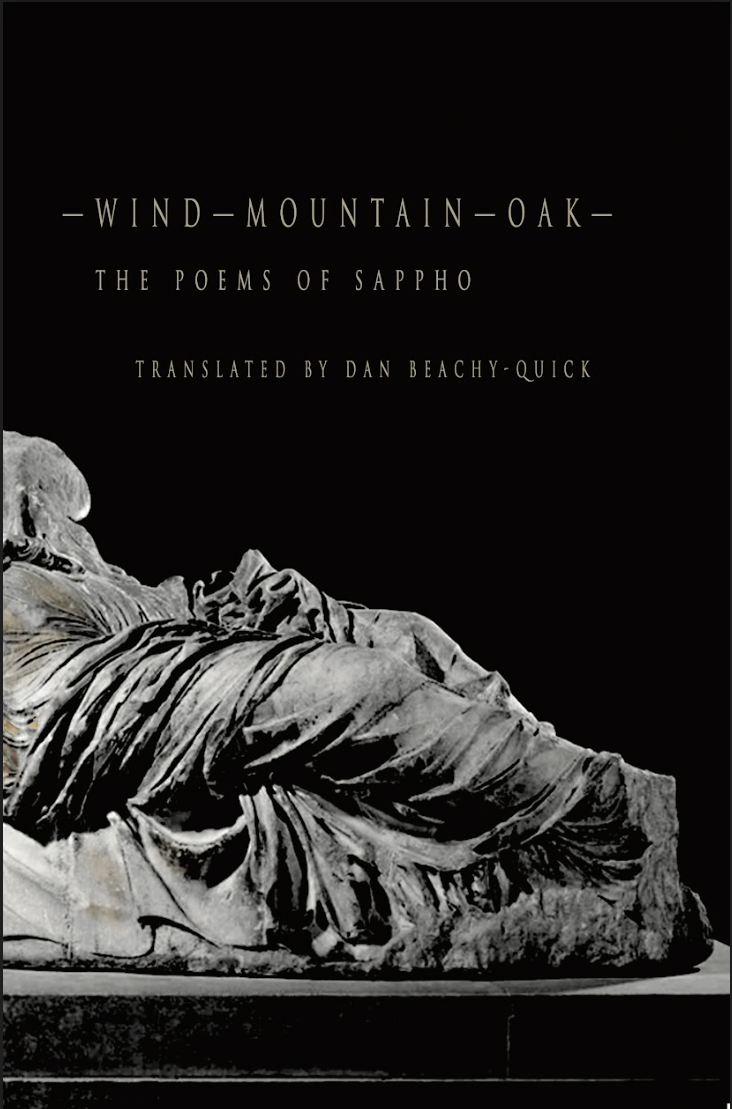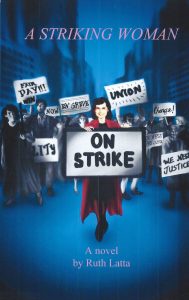 In some of her poems Rodden asks questions that are profound and poignant. These are mainly questions about the absurdity sprouting in our world. I asked the poet if there was a thread in her poetry or a commonality and she answered: “Absurdism is something I think is relevant to people today, where we have been dealing with an international pandemic and environmental catastrophes, and people can relate more to the absurd than at many other times in history.”
In some of her poems Rodden asks questions that are profound and poignant. These are mainly questions about the absurdity sprouting in our world. I asked the poet if there was a thread in her poetry or a commonality and she answered: “Absurdism is something I think is relevant to people today, where we have been dealing with an international pandemic and environmental catastrophes, and people can relate more to the absurd than at many other times in history.”
Category: Book Reviews
Book Reviews
A review of Wind—Mountain—Oak: The Poems of Sappho trans. by Dan Beachy Quick
 Dan Beachy-Quick translates as if he is beside Sappho on her footpath to something quite never before seen and heard. A grove of oaks shake with mountain winds in the book title fragment from a pastoral world of alliteration, rhythm, and rhyme. Our collective species memory enlivens, quakes to a time when we were one with the natural world, calling out holophrases to goats and dogs, other herders, and goddesses and gods.
Dan Beachy-Quick translates as if he is beside Sappho on her footpath to something quite never before seen and heard. A grove of oaks shake with mountain winds in the book title fragment from a pastoral world of alliteration, rhythm, and rhyme. Our collective species memory enlivens, quakes to a time when we were one with the natural world, calling out holophrases to goats and dogs, other herders, and goddesses and gods.
A Review of We Are Changed to Deer at the Broken Place by Kelly Weber
 My copy of this book is filled with quickly scratched notes, annotation symbols only I understand, question marks, small open hearts, underlined sentences, circled words, messy smudges, angry creases. I struggled. I read and re-read. I wondered. I questioned. I chased. I stretched. At times I thought I might break, as well.
My copy of this book is filled with quickly scratched notes, annotation symbols only I understand, question marks, small open hearts, underlined sentences, circled words, messy smudges, angry creases. I struggled. I read and re-read. I wondered. I questioned. I chased. I stretched. At times I thought I might break, as well.
A review of Frank Dark by Stephen Massimilla
 The book is replete with experiences of mental and physical crises, death and ghosts. Many themes resonate with the cover exploring sight/vision, the eye, the sea, the shore, and harbors. Imagery of light/lightning, the moon, lamps, clock, and swans recur throughout the book. The poems also display a sort of PTSD in the aftermath of near death experiences that he explores and shares with the reader.
The book is replete with experiences of mental and physical crises, death and ghosts. Many themes resonate with the cover exploring sight/vision, the eye, the sea, the shore, and harbors. Imagery of light/lightning, the moon, lamps, clock, and swans recur throughout the book. The poems also display a sort of PTSD in the aftermath of near death experiences that he explores and shares with the reader.
A review of Dark Mode by Ashley Kalagian Blunt
 Though this is Blunt’s first full-length thriller, it’s expertly crafted with all the right hooks and twists to keep you engaged and wanting to know what happens until the very end. The fast pace and the intensity of the situation that protagonist Reagan Carson finds herself in from page one doesn’t diminish or undermine the deep exploration of misogyny – both at an individual level and a structural one – that underpins the book, or the way it conveys a growing anxiety that is driven by more than the plot.
Though this is Blunt’s first full-length thriller, it’s expertly crafted with all the right hooks and twists to keep you engaged and wanting to know what happens until the very end. The fast pace and the intensity of the situation that protagonist Reagan Carson finds herself in from page one doesn’t diminish or undermine the deep exploration of misogyny – both at an individual level and a structural one – that underpins the book, or the way it conveys a growing anxiety that is driven by more than the plot.
A review of The Architecture of Dust by Chike Nzerue
 Nzerue’s medical background brings a deep understanding of the topics addressed in this volume, creating imagery that transform the meticulous renderings of the medical field into an arena of understandable rhetoric. There are so many well crafted lines that it is difficult to pull the best to critique.
Nzerue’s medical background brings a deep understanding of the topics addressed in this volume, creating imagery that transform the meticulous renderings of the medical field into an arena of understandable rhetoric. There are so many well crafted lines that it is difficult to pull the best to critique.
Using Form to Manipulate Time in Max Porter’s Lanny
 It is not just the style and formatting that is soaked with the understanding of time, but the prose itself which is permeated with the musings and misgivings about the passing of time, and the understanding of times influence on the world that surrounds. The first section of the book is half of the text, and through it the reader comes to understand that Lanny, like Dead Papa Toothwort, is so in tune with the earth that he doesn’t follow the rationality of humans, of the mundane.
It is not just the style and formatting that is soaked with the understanding of time, but the prose itself which is permeated with the musings and misgivings about the passing of time, and the understanding of times influence on the world that surrounds. The first section of the book is half of the text, and through it the reader comes to understand that Lanny, like Dead Papa Toothwort, is so in tune with the earth that he doesn’t follow the rationality of humans, of the mundane.
A review of A Striking Woman by Ruth Latta
 A Striking Woman is a powerful look at a challenging era in world history. The author expertly and accurately paints a true picture of society in early twentieth-century Quebec, setting the stage for the confrontations that developed later in the life of one very determined woman. Her knowledge of contemporary history is evident. The title is catchy and certainly provides the reader with multiple metaphoric connections to the word, ‘striking’. Ruth has a vivid approach to portraying Canadian women throughout history.
A Striking Woman is a powerful look at a challenging era in world history. The author expertly and accurately paints a true picture of society in early twentieth-century Quebec, setting the stage for the confrontations that developed later in the life of one very determined woman. Her knowledge of contemporary history is evident. The title is catchy and certainly provides the reader with multiple metaphoric connections to the word, ‘striking’. Ruth has a vivid approach to portraying Canadian women throughout history.
A review of The Taiga Syndrome by Cristina Rivera Garza
 Throughout the text Garza challenges the readers memory of what came before in the text using the window, but also through the pervasive repeated “I remember(s)” that occur throughout the text. Each time a thing is remembered it is changed, slightly altered. Which begs the question, how is what we have read previously in the text altered through both the frame of our own remembrance of it and the continual recollections of the narrator?
Throughout the text Garza challenges the readers memory of what came before in the text using the window, but also through the pervasive repeated “I remember(s)” that occur throughout the text. Each time a thing is remembered it is changed, slightly altered. Which begs the question, how is what we have read previously in the text altered through both the frame of our own remembrance of it and the continual recollections of the narrator?
A review of The Beckoning World by Douglas Bauer
 Lou Gehrig, as wrought by Bauer’s pen, appears as he was in life — a pensive, quiet soul, dogged by insecurities and excessively devoted to his mother. Ruth, in the pages of The Beckoning World, is supremely confident, self-absorbed, voluptuary — a boy raised in an orphanage to be deified by a nation. As the Yankee sluggers barnstorm their way through the small-town west, Earl will experience an encounter that provides shape to his own life’s story.
Lou Gehrig, as wrought by Bauer’s pen, appears as he was in life — a pensive, quiet soul, dogged by insecurities and excessively devoted to his mother. Ruth, in the pages of The Beckoning World, is supremely confident, self-absorbed, voluptuary — a boy raised in an orphanage to be deified by a nation. As the Yankee sluggers barnstorm their way through the small-town west, Earl will experience an encounter that provides shape to his own life’s story.